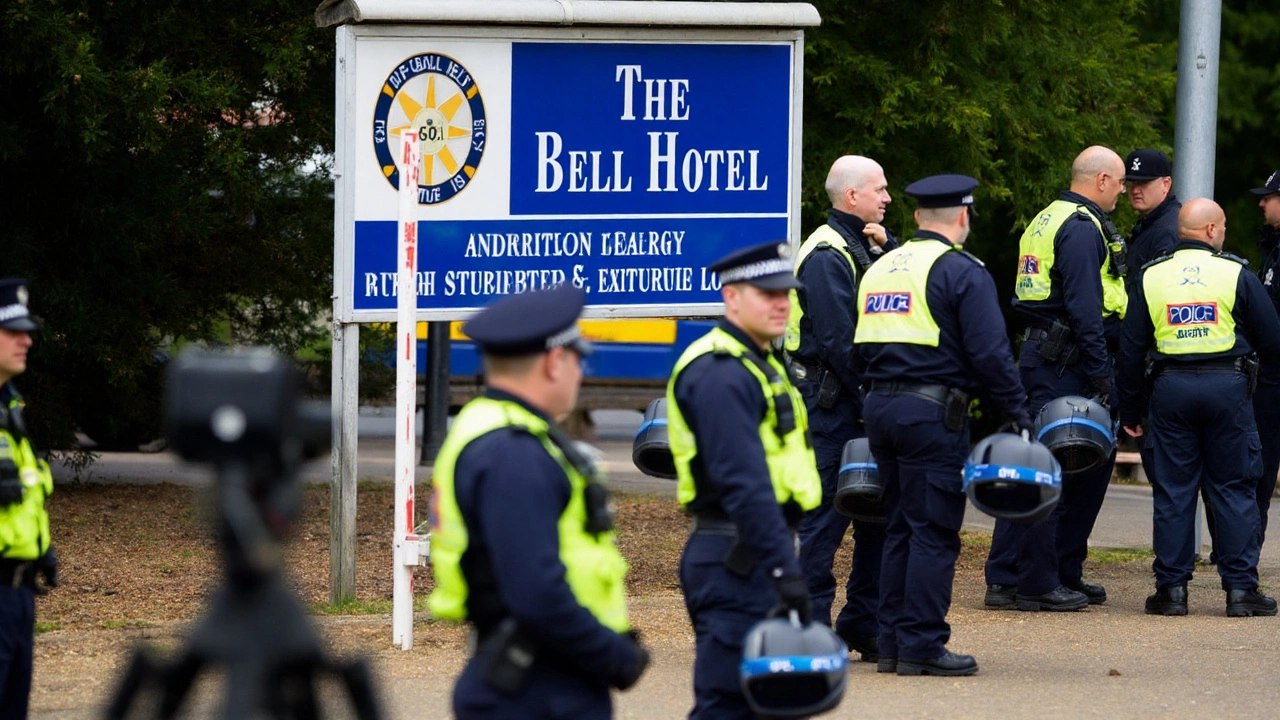Asylum Hotels: What’s Happening Across the UK?
Ever walked past a hotel that suddenly turned into temporary housing for asylum seekers and wondered what’s going on? You’re not alone. In the last few months, several UK towns have seen hotels repurposed as asylum accommodation, sparking heated debates, council rulings, and community reactions. This guide breaks down the biggest stories, why they matter, and what you can expect next.
Park Hotel Diss: A Clash Between Council and Home Office
The Park Hotel in Diss, Norfolk, is at the centre of a fresh standoff. South Norfolk Council has moved to block the Home Office’s plan to switch the hotel from family housing to single‑adult asylum accommodation. The council issued an enforcement notice and warned it could use a Temporary Stop Notice if the Home Office pushes ahead. The hotel’s owner says the property could close entirely if the plan proceeds, leaving a vacant building in a small town that already struggles with limited services. Residents are divided – some fear strain on local resources, while others argue the need for humane accommodation.
Key takeaways:
- Council action shows local authorities can challenge national asylum policies.
- The hotel’s future hinges on whether the Home Office can secure a legal foothold.
- Community sentiment is mixed, highlighting the need for clear communication.
Epping Hotel Ban: A Court Ruling That Stirs Nationwide Debate
In Essex, the High Court recently blocked the Bell Hotel in Epping from housing asylum seekers. The decision was welcomed by local parents who felt the hotel would disrupt schools and traffic. At the same time, the ruling sparked a broader conversation about the government’s migrant policy and the role of private hotels in the asylum system. Critics argue that using hotels as short‑term asylum centres is a stop‑gap that ignores long‑term integration needs.
What this means for other towns:
- Legal challenges can succeed when community impact is clearly demonstrated.
- Local opposition often focuses on schools, transport, and safety.
- The government may need to rethink the reliance on hotels for short‑term asylum housing.
Besides these two headline cases, other hotels across the UK have seen similar proposals. Some councils have welcomed the additional housing as a way to meet the Home Office’s targets, while others have balked, citing pressure on health services and housing markets. The pattern is clear: asylum hotels are a flashpoint for the larger debate about how the UK handles immigration, local resources, and community cohesion.
So, what can you do if you live near a hotel slated for asylum accommodation?
- Attend council meetings – they’re public and often streamed online.
- Stay informed through local news outlets and official council statements.
- Voice your concerns or support in a constructive way; written submissions are usually accepted during planning consultations.
Understanding the facts helps keep the conversation focused on practical solutions rather than fear‑driven headlines. Whether you’re a resident, a local business owner, or just curious about the issue, keeping an eye on council decisions and court rulings will give you the best picture of how asylum hotels will shape your community.
In the coming weeks, expect more updates as the Home Office revises its accommodation strategy and courts continue to weigh in on local challenges. Stay tuned for the latest developments – the story is still evolving, and your community’s voice matters.

Anti-Immigration Protests Sweep UK as Far-Right Targets Asylum Hotels After Court Ruling
A High Court ruling that backed Epping Forest’s bid to shut an asylum hotel has sparked a surge of anti-immigration protests across UK towns and cities. Far-right groups rallied outside hotels in Bristol, Leicester, Newcastle, Liverpool and more, while counter-protesters were often outnumbered. Reform UK amplified the action as it leads polls. Ministers vow to end hotel use by 2029, but an appeal is underway.
View more